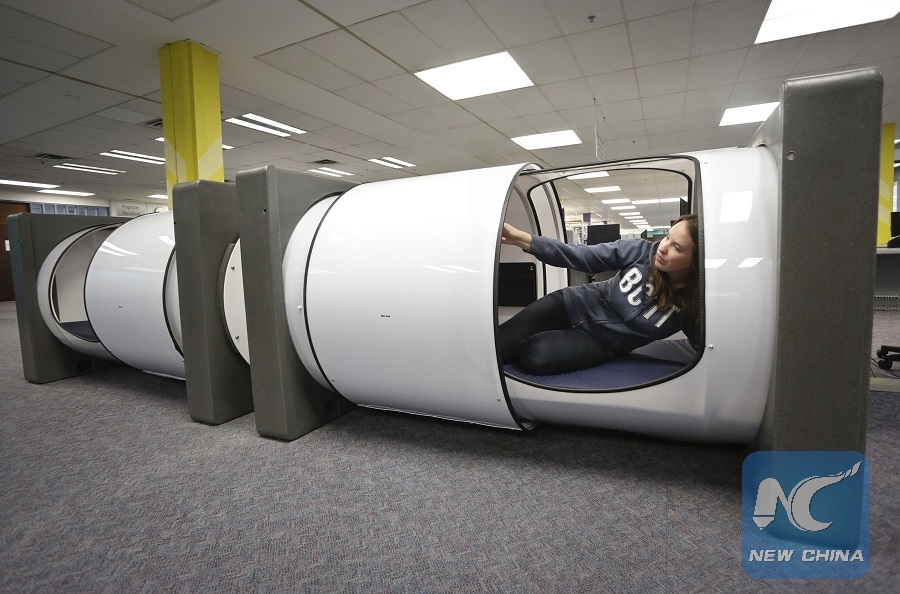
A student pulls the sliding door inside a sleep pod at the campus library of the British Columbia Institute of Technology (BCIT) in Vancouver, Canada, Aug. 5, 2016. Thesesleep pods allow students to catch a 30 to 60 minutes power nap between classes in safe and secure surroundings. (Xinhua/Liang Sen)
LONDON, May 28 (Xinhua) -- Either sleeping for less than seven hours or more than nine hours could affect one's cognitive performance such as visual memory and reaction time in a negative way, according to a study released on Tuesday by the University College London (UCL).
A team of researchers from UCL analyzed data from nearly 400,000 participants from UK Biobank as well as data from the International Genomics of Alzheimer's Project, in a bid to examine whether there is a potential causal link between sleep and cognitive function and dementia.
They found that those who slept for less than seven hours made more errors (5 percent) in a visual memory test, whilst those who slept for more than nine hours made even more errors (9 percent) in this test.
"We would recommend that most healthy adults follow the recommendation of seven to nine hours of sleep," said senior author of the study Dr. Victoria Garfield at UCL Institute of Cardiovascular Science.
"Overall, our study highlights the importance of sleep duration in relation to cognitive function. This suggests that improving sleep habits may be beneficial for cognitive health," said lead author, Albert Henry, PhD candidate at UCL Institute of Cardiovascular Science.
As for whether short or long sleep is linked to risk of dementia, more research is needed to investigate this relationship, according to the researchers.

